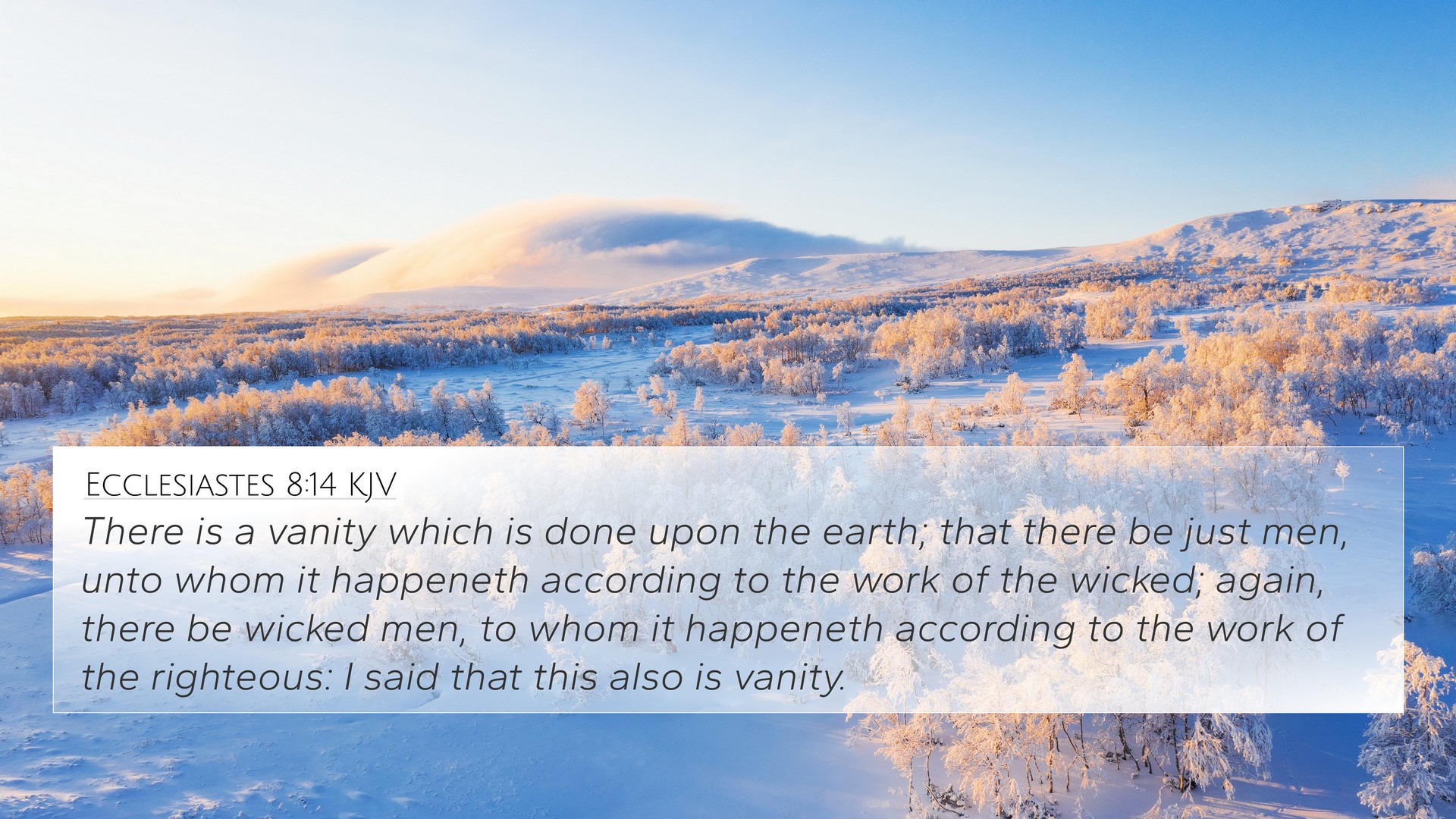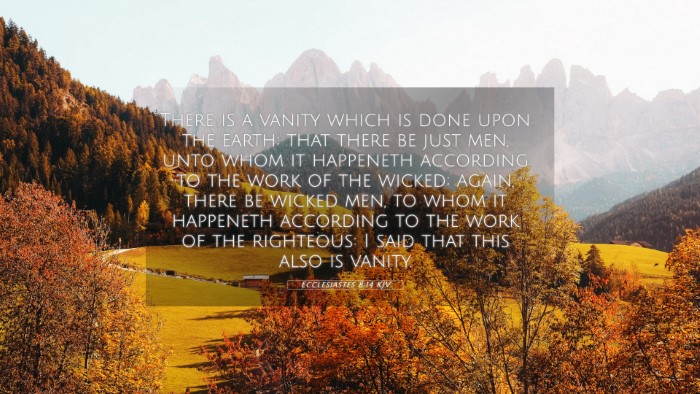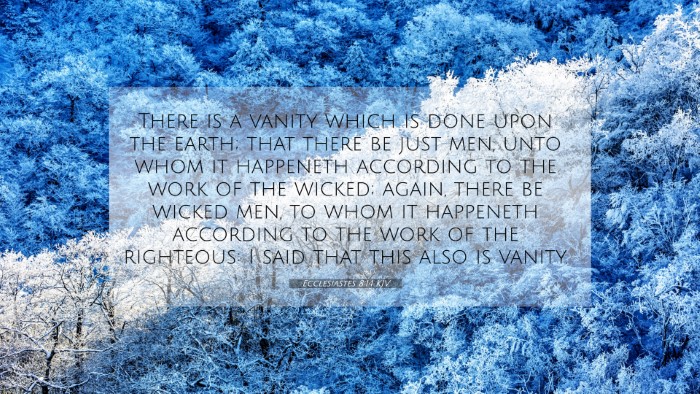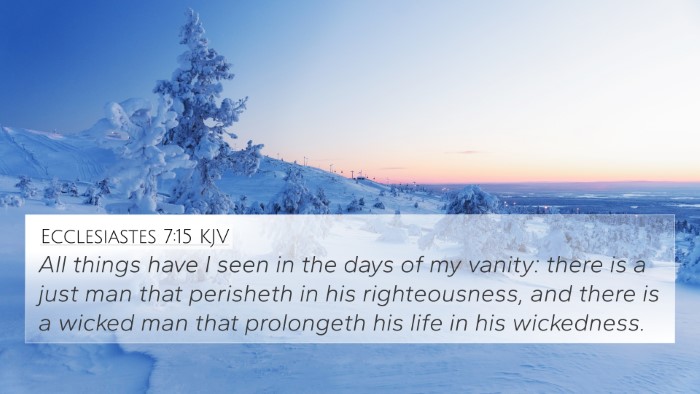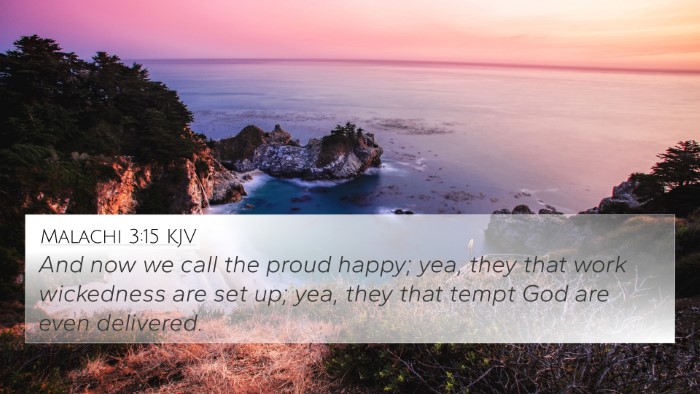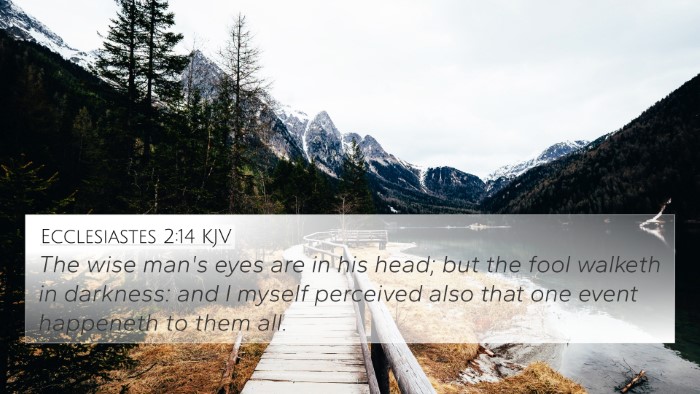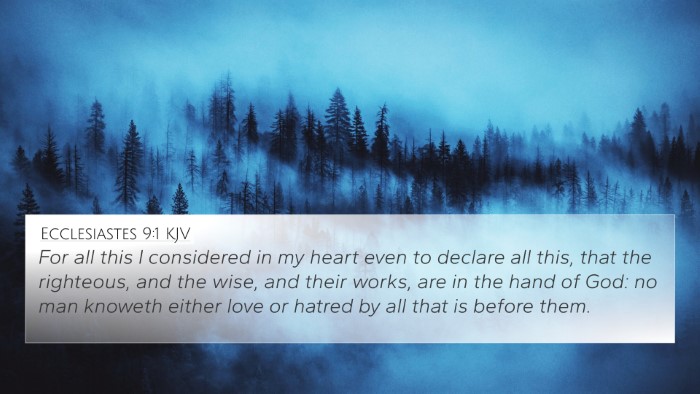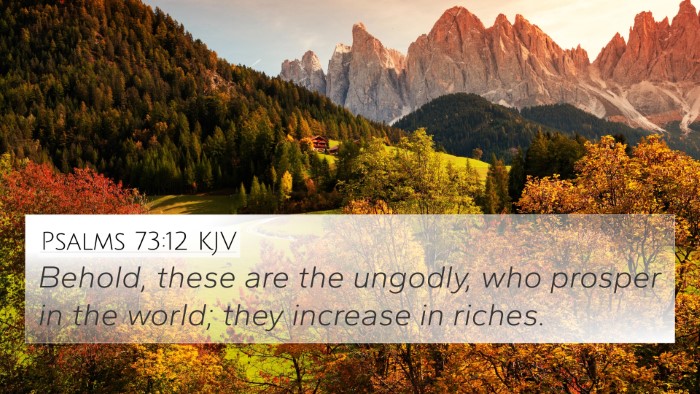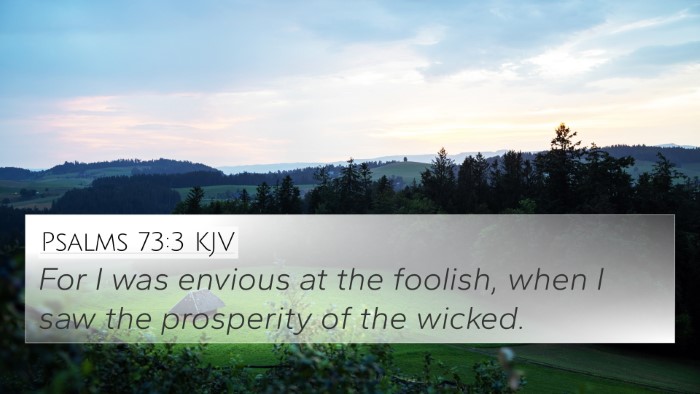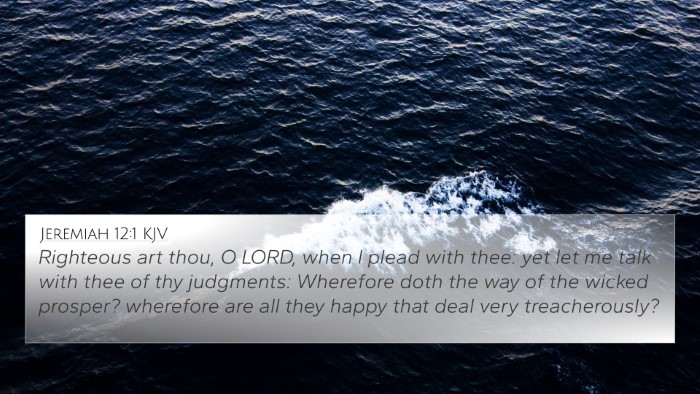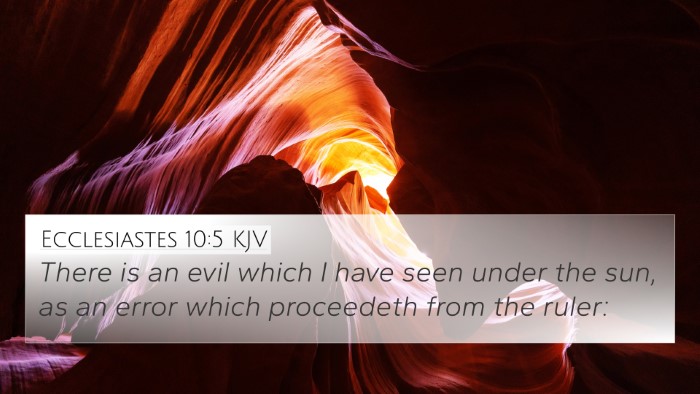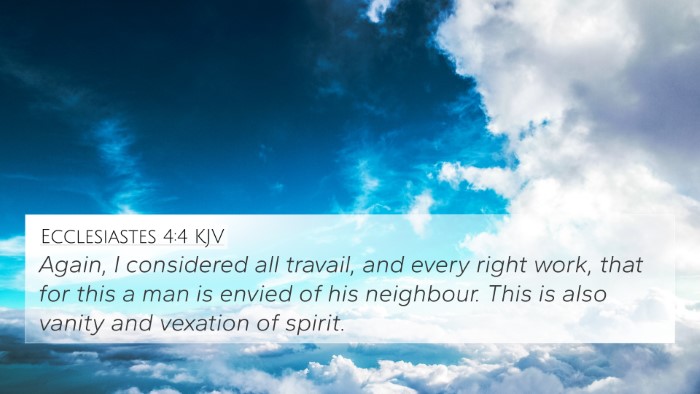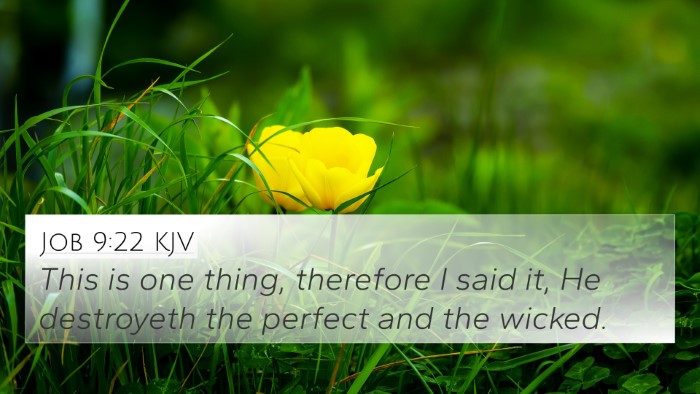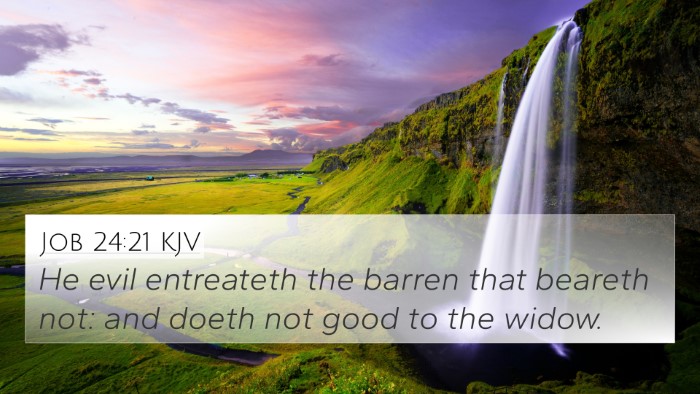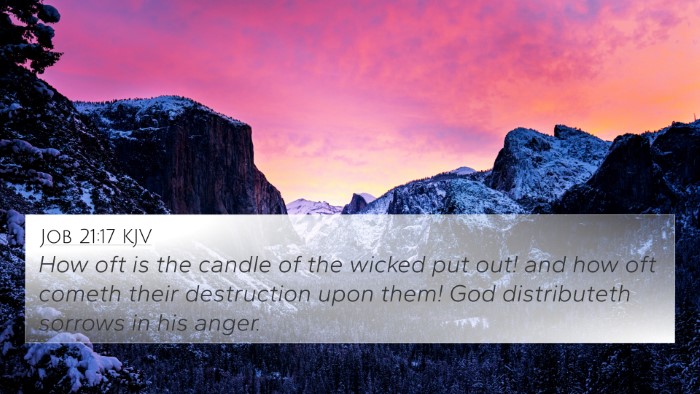Understanding Ecclesiastes 8:14
Verse: "There is a vanity which occurs on earth, that there are just men, to whom it happens according to the work of the wicked; again, there are wicked men, to whom it happens according to the work of the righteous. I said that this also is vanity."
Summary of Meaning
This passage from Ecclesiastes addresses the perplexing nature of justice and outcomes in life. It captures an observation about the randomness and seeming injustice that can occur in the world, where the fate of both the righteous and the wicked can appear to be intertwined, leading to confusion regarding divine justice.
Insights from Public Domain Commentaries
-
Matthew Henry:
Henry emphasizes the theme of apparent absurdities in life, noting that despite the righteousness of some, they face trials similar to the wicked. He suggests that this verse calls us to recognize the limitations of human understanding in perceiving justice, warning against hasty conclusions about God’s workings in the world.
-
Albert Barnes:
Barnes discusses the contrasts presented in the verse, highlighting the vanity or futility of comparing earthly rewards and punishments. He points out that the apparent randomness of fortune is a reminder that divine justice is not always immediately discernible and encourages the faithful to trust in God’s ultimate plan, even when circumstances appear grim.
-
Adam Clarke:
Clarke elaborates on the existential question posed by the verse—why do the wicked often prosper while the righteous suffer? He posits that such observations reveal a deeper philosophical inquiry into human existence and the moral order of the universe, suggesting that believers should seek solace in faith rather than in the observable outcomes of life.
Related Bible Cross-References
Ecclesiastes 8:14 bears connections with several other biblical passages that explore themes of justice, righteousness, and the human condition. Below are notable cross-references:
- Job 21:7-9: Job questions why the wicked live and attain wealth while the righteous suffer.
- Psalms 73:3-5: Asaph expresses his envy towards the prosperity of the wicked compared to his own struggles.
- Proverbs 11:7: This verse suggests that the expectations of the wicked vanish, which provides a contrast to the idea of their temporary prosperity.
- Malachi 3:15: The people lament that the proud are blessed, while those who serve God are afflicted, echoing similar doubts about justice.
- Matthew 5:45: Jesus teaches that God allows rain to fall on both the just and the unjust, indicating a common grace that can be interpreted as God's justice beyond human perception.
- Romans 8:28: This assertion highlights that God works all things together for good for those who love Him, providing a theological framework for understanding life's injustices.
- Hebrews 12:1-2: Encouragement to persevere in the faith despite earthly trials is presented, emphasizing a long-term vision beyond current suffering.
- 1 Peter 3:14: Peter recognizes that suffering for righteousness is a part of the Christian experience, reinforcing the themes found in Ecclesiastes.
- Galatians 6:9: This passage encourages believers not to lose heart in doing good, promising eventual reaping, thus linking back to the idea of eternal justice.
- Revelation 21:4: A promise of a future without pain or suffering, suggesting that current injustices will be righted in the age to come.
Thematic Connections
The themes of Ecclesiastes 8:14 resonate throughout Scripture, prompting a deeper comparative Bible verse analysis that reflects on the nature of good and evil, the trials of the righteous, and divine justice. By engaging in cross-referencing biblical texts, believers can gain a fuller understanding of these concepts.
Tools for Bible Cross-Referencing
Utilizing tools for Bible cross-referencing can enrich your study and understanding of passages like Ecclesiastes 8:14. Consider using:
- Bible Concordance: A comprehensive resource that lists words found in the Bible and their references, useful for further study of specific biblical themes.
- Bible Cross-Reference Guide: These guides help identify connections between passages, enhancing the study experience.
- Cross-Reference Bible Study: A methodical approach to exploring how different passages relate, assisting in drawing thematic parallels.
- Bible Chain References: These highlight sequential links between verses, facilitating a deeper examination of connections.
Conclusion
Ecclesiastes 8:14 serves as a profound commentary on the complexities of life, inviting believers to reflect on the nature of justice and the sometimes inexplicable distributions of fortune. By engaging with related scriptural texts and utilizing cross-referencing tools, one can gain richer insights into the enduring themes of righteousness and justice in Scripture.
Understanding these connections makes it possible to see a broader narrative within the Bible, enhancing both personal faith and communal discourse amongst believers.
